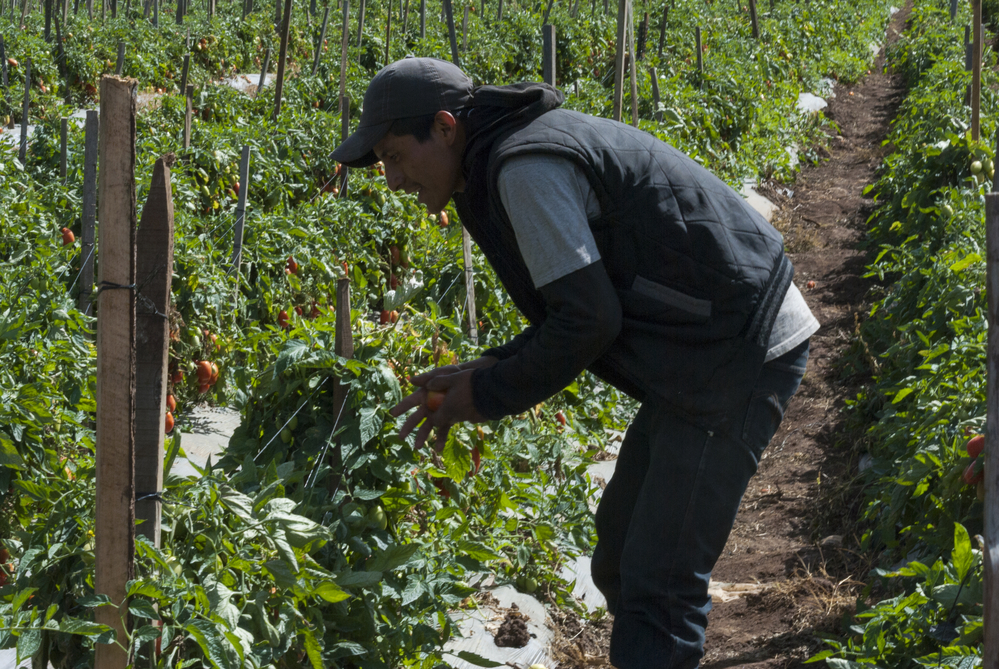The Northern Triangle of Central America encompasses three countries and is especially susceptible to factors that encourage migration and forced displacement, amidst food insecurity, limited access to social protection, the depletion of natural resources and the adverse repercussions of environmental degradation and climate change. Agriculture and rural development are key to effectively tackling the causes of migration.

San Jose, 9 July 2021 (IICA) – The countries of the Americas will spotlight the situation of food insecurity in the Northern Triangle of Central America and its social, economic and environmental consequences, indicating that the extremely vulnerable region deserves special consideration.
The proposal will be made at the upcoming UN Food Systems Summit, where the region will underscore the need for special consideration of the 156,000-square-kilometer region that encompasses three countries—El Salvador, Guatemala and Honduras—and 218 municipalities with high migration rates, in which 25% of the population is between 15 and 35 years of age.
“The situation of food insecurity with social, economic and environmental consequences deserves special consideration”, stated the countries regarding the Northern Triangle.
The statement was made in a resolution endorsed by the 31 countries that participated in the Executive Committee of the Inter-American Institute for Cooperation on Agriculture (IICA)—one of the governing bodies of the specialized agency for agricultural and rural development—at which the countries of the Americas agreed on a unified position ahead of the Summit scheduled for September, with the pre-event to be held in Rome in late July.
The countries endorsed the 16 key messages included in the document entitled “On the road to the UN Food Systems Summit: Key messages from the perspective of agriculture in the Americas”, an effort coordinated by IICA and adopted by the Member States.
In the approved resolution, in addition to fully endorsing the general messages on agriculture in the hemisphere ahead of the Food Systems Summit 2021, the countries requested that the Chair of IICA’s Executive Committee and Minister of Agriculture and Livestock of Paraguay, Moisés Santiago Bertoni, and Manuel Otero, Director General of the Institute, “send these messages to the UN Food Systems Pre-Summit to be held on 26-28 July in Rome, Italy”.
The Northern Triangle of Central America is especially susceptible to factors that encourage migration and forced displacement, such as extreme poverty, a lack of job opportunities, instability and violence. Food insecurity in the region is the result of limited access to social protection, the depletion of natural resources and the adverse repercussions of environmental degradation and climate change. Agricultural and rural development are believed to be the keys to effectively tackling the causes of migration.
In addition to the Northern Triangle, the countries of the Americas will also request special consideration of the Caribbean—especially the Eastern Caribbean and Haiti—a food-import dependent region that is regularly devastated by natural disasters and heavily affected by climate change.
The resolution indicated that the situation facing the Caribbean, a region made up of smaller and less agriculturally competitive island States, “requires special consideration” and the priorities that should be considered include “strengthening resilience to climate events, reducing levels of food insecurity and applying international cooperation and financing approaches”, particularly with respect to the Eastern Caribbean and Haiti.
“Strengthen resilience to climate events, reduce levels of food insecurity and apply international cooperation and financing approaches to deal with the new context”, indicated the countries of the Americas.
The consensus was to undertake unified and coordinated action at the global forum, which will begin this month at the Food Systems Pre-Summit in Rome. IICA will attend as a member of the Summit Champions Network—one of the meeting’s support structures—as the representative of the agriculture and rural sectors of North and Latin America and the Caribbean.
The Summit was convened by Antonio Guterres, United Nations Secretary-General, to help deliver progress on the proposed Sustainable Development Goals (SDGs) that seek to create a framework of peace and prosperity for the global population.
The unity of action approved at the meeting of the Executive Committee of IICA is based on the idea that farmers must be duly represented at the Summit and that their key role in the food supply must be recognized.
More information:
Institutional Communication Division.
comunicacion.institucional@iica.int











